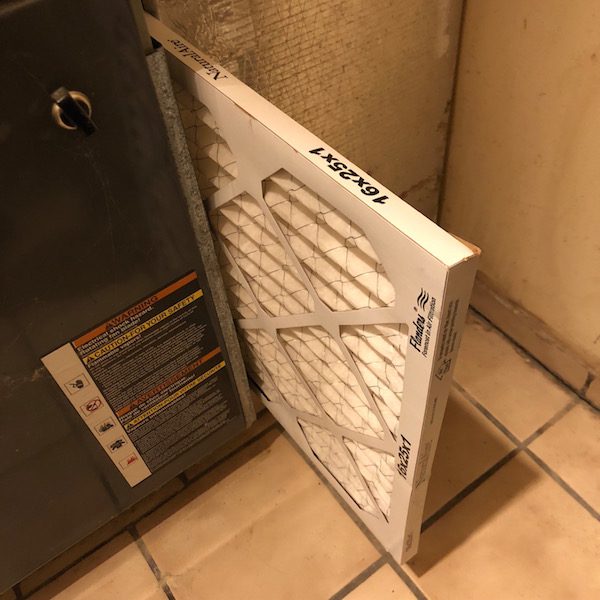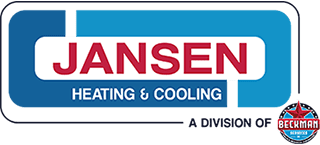Don’t Neglect the Air Filter in Your HVAC System

You might be surprised to learn how much a simple air filter (of the right type) in a residential heating and cooling system can improve heating and cooling efficiency and performance as well as indoor air quality. If you buy the right filter for your needs and make sure it’s replaced on a regular basis, an air filter in the $10-$15 price range can provide extensive benefits in your household. Conversely, if you use an el cheapo filter and seldom replace it, the negative consequences can be significant. These can include eventual HVAC repairs to a broken AC or heater that might not have been necessary is you had chosen a good filter and replaced it when necessary.
It doesn’t matter what sort of forced-air heating and cooling system your homes uses – whether a furnace, heat pump, AC or a combination system – the air filter plays an essential and multi-faceted role.
Here’s How an HVAC Air Filter Does Its Job
The filter, after being installed near where your home’s ductwork is connected to the indoor cooling or heating unit, performs its job whenever the system kicks on to create and distribute warm or cool air. As a powerful fan pulls air from the return ductwork into the AC, heat pump or furnace, the air passes through the filter. The filtration media in the filter remove various types of debris and dust – which may include unwanted contaminants and allergens such as mold spores, pollen and pet dander. (That is, providing the filter is rated to remove smaller particulates and isn’t already clogged with material.)
The result is improved indoor air quality and a cleaner, more efficient cooling or heating system that’s more likely to provide balanced air distribution. Without a properly maintained air filter, dust and dirt particles will end up on the sensitive machinery in your HVAC equipment, creating friction and inefficient, energy-draining operation. Dust can hurt the performance of a furnace or AC blower, for example, or erode the essential heat-exchange capability of the evaporator coil in an AC or heat pump. When these parts are clean, your system is much more likely to operate at the efficiency level it was designed for.
With regard to indoor air quality, you obviously will enjoy cleaner air in your home when an effective air filter has sifted out contaminants before the forced-air cooling or heating system circulates the air through your home. Depending on individual circumstances in your household, and the type and quality of the air filter you’re using, you may want to consider supplementing the air filter with a dedicated air purifier or a system that utilizes a HEPA (high-efficiency particulate arresting/air) filter. Be careful, though, that you don’t select an HVAC filter that’s TOO high efficiency. Very dense and effective filtration media may end up restricting system airflow itself, which is something to avoid. Discuss the right filter for your home’s system with your trusted Cincinnati HVAC contractor.
Don’t Neglect Air Filter Maintenance
The thing about an HVAC air filter is that if it’s doing its job, it will get clogged on a regular basis. When the filter gets coated with dirt and debris, more of that material will end up gravitating to sensitive system components, impeding performance (as explained earlier). However, the main negative effect will be restricted airflow through your system. When the air isn’t moving smoothly through ducts and registers, the equipment has to work harder and longer to send it through the system and achieve the desired thermostat setting. This will result in higher costs, lower efficiency and more equipment breakdowns. You can avoid all of these problems by reminding yourself to inspect the air filter once a month and replace it with a new one when the old filter looks dirty or clogged.
Choose the Right Air Filter for Your System
Air filters aren’t all the same, either in price, size or efficiency. Consult with your trusted HVAC company on what filter will work best in your furnace, AC or heat pump, to meet the particular needs of your household. For instance, if someone in your home has a respiratory ailment or serious allergies, you’ll want to consider a high-efficiency HVAC filter that removes a greater percentage of airborne contaminants. Your technician will recommend a filter that accomplishes this goal without unduly impeding system airflow.
